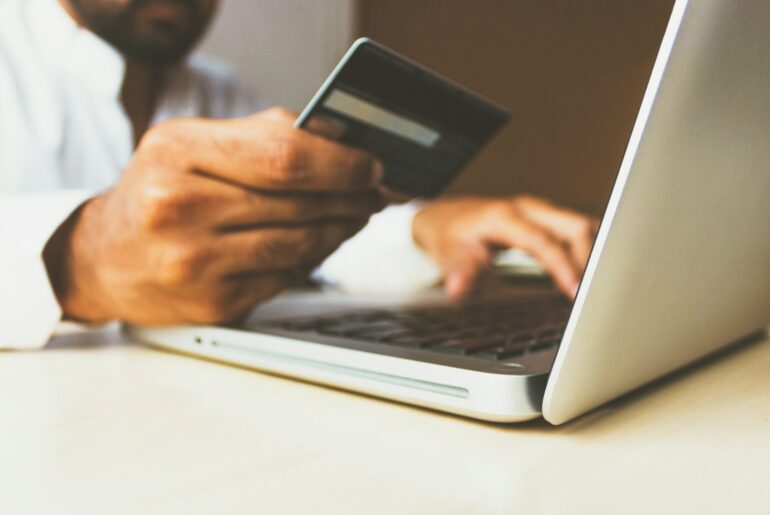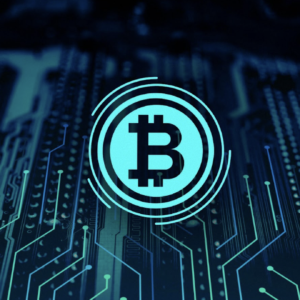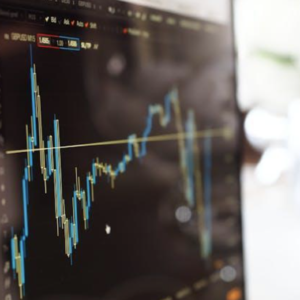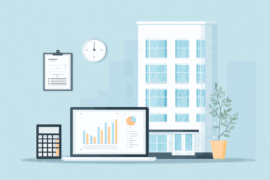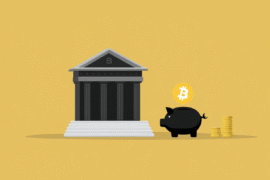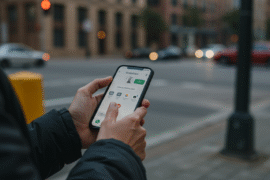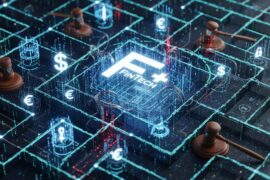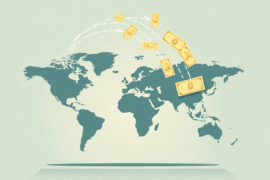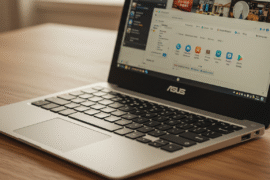This article may contain references to products or services from one or more of our advertisers or partners. We may receive compensation when you click on links to those products or services. Nonetheless, our opinions are our own.
The information presented in this article is accurate to the best of our knowledge at the time of publication. However, information is subject to change, and no guarantees are made about the continued accuracy or completeness of this content after its publication date.
Financial security in the digital age is no small concern. Cybercriminals lurk in the shadows, phishing for data, breaching accounts, and siphoning funds from unsuspecting victims. Online transactions, digital banking, and mobile payments have revolutionized convenience, but they also come with serious risks. One of the most effective tools for protecting your financial information? A Virtual Private Network (VPN). Below, we’ll explore seven ways a VPN can be your financial security shield.
- 1. Encrypts Your Online Transactions
- 2. Protects Against Identity Theft
- 3. Secures Online Shopping
- 4. Prevents Price Discrimination and Overcharging
- 5. Shields You from Phishing Attacks
- 6. Adds a Layer of Security for Cryptocurrency Transactions
- 7. Keeps Your Financial Data Private from ISPs and Third Parties
- Final Thoughts: Is a VPN Worth It for Financial Security?
- Recommended Reads
1. Encrypts Your Online Transactions
Every time you enter credit card details, transfer funds, or check your bank balance, data travels across networks. If that network is unsecured—like public Wi-Fi at a café or airport—your sensitive information becomes vulnerable to hackers.
A VPN uses encryption protocols to scramble your data, making it unreadable to anyone who might intercept it. This is particularly crucial in an era where cybercrime damages are expected to cost the world $10.5 trillion annually by 2025 (Cybersecurity Ventures). Would you write your bank details on a billboard? No? Then don’t send them over an unprotected connection.
2. Protects Against Identity Theft
Identity theft isn’t just a plotline for thriller movies—it’s a real and growing problem. According to the Federal Trade Commission (FTC), there were 5.7 million reports of fraud and identity theft in 2023 alone. Cybercriminals can steal personal details through unsecured networks, phishing scams, or malware.
A VPN hides your IP address and encrypts data transmissions, making it significantly harder for hackers to track your online activity or steal your information. Without a traceable IP, identity thieves have one less way to breach your finances.
3. Secures Online Shopping
Safe online shopping and a VPN go hand in hand. Fake websites, fraudulent checkout pages, and unsecured connections can make entering payment details risky. A VPN app provides an extra layer of protection, especially if you’re using Wi-Fi networks in hotels, cafes, or even your workplace. For example, the best VPN for Mac – VeePN, can protect against phishing, cookie theft, data interception, Internet channel eavesdropping, attacks on identity, etc. At the same time, VPN is accessible, does not require complex settings, and one subscription allows you to connect up to 10 devices.
Additionally, cybercriminals sometimes set up rogue networks—fake Wi-Fi hotspots that mimic legitimate ones. Connect to one unknowingly, and they can capture every keystroke. But with a VPN, your connection remains encrypted, rendering their tricks useless.
Voted "Best Overall Budgeting App" by Forbes and WSJ
Monarch Money helps you budget, track spending, set goals, and plan your financial future—all in one app.
Get 50% OFF your first year with code MONARCHVIP
4. Prevents Price Discrimination and Overcharging
Did you know that online retailers and booking platforms can change prices based on your location? Airlines, hotel websites, and even e-commerce stores often use dynamic pricing, meaning you could pay more just because of your region.
By connecting to a VPN server in another country, you can compare prices and potentially save money. Some travelers have reported saving up to 40% on airfare simply by changing their virtual location. Your finances deserve every possible advantage—why not let a VPN help?
5. Shields You from Phishing Attacks
Phishing attacks—fraudulent attempts to steal personal data—are evolving rapidly. These scams often come in emails, texts, or fake websites posing as banks or financial institutions. In 2023 alone, 3.4 billion phishing emails were sent daily (Verizon Data Breach Report).
A VPN enhances security by blocking malicious websites and hiding your true IP address, reducing the risk of targeted attacks. While a VPN won’t eliminate phishing entirely, it makes it much harder for scammers to pinpoint and exploit you.
6. Adds a Layer of Security for Cryptocurrency Transactions
If you trade or store cryptocurrency, you already know how volatile and high-risk the market can be—not just in terms of price fluctuations but also security breaches. In 2022, over $3.8 billion was stolen in crypto hacks, according to Chainalysis.
Many crypto platforms don’t provide adequate security, and some governments even restrict access. A VPN allows you to connect to secure servers, keeping your transactions private and reducing exposure to hackers who might be lurking on public networks, waiting to intercept data.
7. Keeps Your Financial Data Private from ISPs and Third Parties
Most internet users don’t realize this, but their Internet Service Provider (ISP) tracks browsing habits, including visits to financial sites. Some ISPs even sell user data to advertisers, which can lead to targeted ads or potential exposure of sensitive financial behavior.
A VPN prevents your ISP from seeing which banking sites you visit or what transactions you make. This helps ensure that your financial information stays between you and your bank—not in the hands of third parties who have no business knowing your spending habits.
Final Thoughts: Is a VPN Worth It for Financial Security?
Absolutely. The increasing number of online fraud cases, identity theft incidents, and cyberattacks make digital security a non-negotiable priority. Whether you’re shopping online, managing investments, or simply logging into your banking app, a VPN adds essential layers of protection.
But remember: while a VPN is a powerful security tool, it should be used alongside other protective measures. Enable two-factor authentication (2FA) on financial accounts, regularly update passwords, and stay alert for suspicious activity. Digital threats are evolving—but so are the tools to fight them. Stay secure, stay smart, and let a VPN be your financial bodyguard in the online world.

Reviewed and edited by Albert Fang.
See a typo or want to suggest an edit/revision to the content? Use the contact us form to provide feedback.
At FangWallet, we value editorial integrity and open collaboration in curating quality content for readers to enjoy. Much appreciated for the assist.
Did you like our article and find it insightful? We encourage sharing the article link with family and friends to benefit as well - better yet, sharing on social media. Thank you for the support! 🍉
Article Title: 7 Ways a VPN Can Help Secure Your Finances
https://fangwallet.com/2025/03/25/7-ways-a-vpn-can-help-secure-your-finances/The FangWallet Promise
FangWallet is an editorially independent resource - founded on breaking down challenging financial concepts for anyone to understand since 2014. While we adhere to editorial integrity, note that this post may contain references to products from our partners.
The FangWallet promise is always to have your best interest in mind and be transparent and honest about the financial picture.
Become an Insider

Subscribe to get a free daily budget planner printable to help get your money on track!
Make passive money the right way. No spam.
Editorial Disclaimer: The editorial content on this page is not provided by any of the companies mentioned. The opinions expressed here are the author's alone.
The content of this website is for informational purposes only and does not represent investment advice, or an offer or solicitation to buy or sell any security, investment, or product. Investors are encouraged to do their own due diligence, and, if necessary, consult professional advising before making any investment decisions. Investing involves a high degree of risk, and financial losses may occur including the potential loss of principal.
Source Citation References:
+ Inspo
There are no additional citations or references to note for this article at this time.
